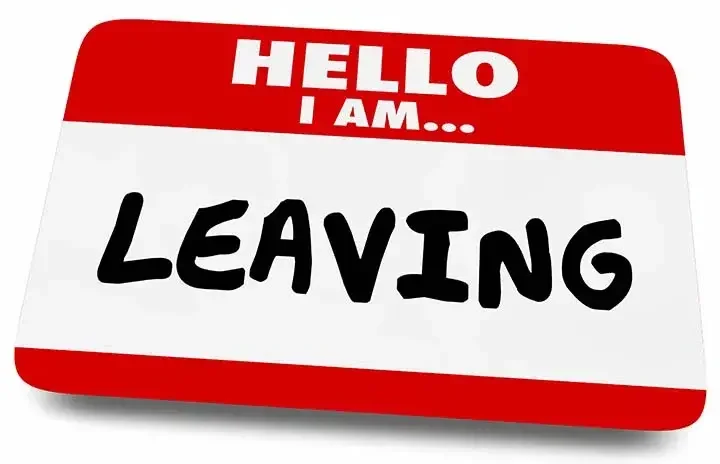An epic job quitting is the stuff of legends. Everyone at one time or another has had the fantasy of leaving a crummy work experience and going out in a blaze of glory, or even with a marching band. Youtube overflows with videos of disgruntled workers parting ways with employers in an array of triumphant, creative, and boisterous celebrations. But that's probably not the best choice. It's better to leave your job on a positive note by sending a polite resignation letter, thanking your employer, and working hard right up until your last day. That may not be the easiest—or most satisfying—route to take, but it will likely serve you better in the long run.

How you quit your job and what you do in your last days can have long-term effects when you need your old employer for a reference. If you have an unprofessional exit, word can spread to other people in your profession, hurting your chances for new opportunities. So, here's how to quit with your dignity intact.
How much notice to give
Your employee handbook or employment contract, if you have one, may tell you how much notice you're expected to give before quitting. If not, a minimum of two weeks notice is standard. However, if you are an executive, team leader, or major player in a big project, a two-week notice could leave your employer in a tough position. They may need more time to find a replacement and transition your responsibilities.
If you aren't sure how much notice your employer needs, consider talking with your manager before you set a start date for your new job. Explain to your new employer that you want to delay your start date so you can wrap up your work and be fair to your old boss.
Talking to your manager
Even if your relationship with your supervisor isn't warm and friendly, your manager might react badly to hearing through the grapevine that you've quit. So before you spill the beans to all your coworkers or send a two-week resignation letter to HR, talk to your manager face-to-face and explain that you are leaving, and when.
To avoid surprises, you can send an advance email saying you'd like to talk about your future. Be sure to thank your manager for the opportunities you've been given and the training you've received. Keep things positive—this isn't the moment to complain about the way you've been treated.
What to write in a resignation letter
If you've already told your manager you're leaving, a resignation letter feels like a formality, but it's an important one. The letter will go into your file, clearly showing that you left the company voluntarily. And human resources may need the letter to begin processing your departure.
There are just a few things that need to be in a classy resignation letter. Keep it brief and professional with a simple and straightforward resignation letter template. A funny resignation letter highlighting your boss' unique fashion choices may not go over as well as you hoped. So, here's what to include, in order:
- The fact that you are quitting.
- The date you are leaving.
- (Optional) The reason you are leaving. Do not use the resignation letter to list all the ways your employer sucks. Always keep things positive. But, if it's appropriate, you can say you've taken a new job or decided to stay home with the kids, or whatever it is.
- A couple of sentences thanking your employer. Think about what you are most grateful for, or what has made the biggest difference in your professional development. Be specific if you can.
- Offer to help with the transition.
Email or deliver the letter to your immediate boss and to whoever is responsible for human resources at your company.
How to handle awkward situations
Sometimes, life happens, and you can't give a full two weeks notice before leaving a job. And sometimes you have to quit a job that is truly making you hate your life. So, here's how to go about it gracefully.
If you are writing a resignation letter without notice, state that you are leaving immediately, and apologize for the short notice. If it feels appropriate, you can share the reason why you are leaving so suddenly, or you can just say “for personal reasons." Offer to help with the transition only if you really plan to be a part of that process.
If you are sending a resignation letter and you're unhappy with management, don't write an angry or sarcastic resignation letter. Save that for your diary. Just keep things short and to the point, and thank your employer for the opportunity to work there. An exit interview or private meeting might be a better place to voice your concerns.
After you've resigned
Remember to end things on a good note and be a team player right up until the end. Keep doing your job and meeting your deadlines. Help transition your work to others, if you're asked. Sometimes, the way you act when you leave makes as much of an impression as all the things you did as an employee.

